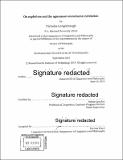| dc.contributor.advisor | Sabine Iatridou. | en_US |
| dc.contributor.author | Longenbaugh, Nicholas. | en_US |
| dc.contributor.other | Massachusetts Institute of Technology. Department of Linguistics and Philosophy. | en_US |
| dc.date.accessioned | 2020-03-09T18:53:30Z | |
| dc.date.available | 2020-03-09T18:53:30Z | |
| dc.date.copyright | 2019 | en_US |
| dc.date.issued | 2019 | en_US |
| dc.identifier.uri | https://hdl.handle.net/1721.1/124100 | |
| dc.description | Thesis: Ph. D. in Linguistics, Massachusetts Institute of Technology, Department of Linguistics and Philosophy, 2019 | en_US |
| dc.description | Cataloged from PDF version of thesis. | en_US |
| dc.description | Includes bibliographical references (pages 167-174). | en_US |
| dc.description.abstract | This dissertation addresses two main topics: the correlation between agreement and movement, and the formal and distributional status of expletive elements cross-linguistically. Concerning the first topic, my proposal is that agreement and movement are formally dissociated, as proposed by Chomsky (2000, 2001), but often coupled together by the action of an economy constraint that preferences minimizing the number of syntactic objects operated on in the derivation. I explore the consequences of this proposal in the domain of past participle agreement in the Romance and Scandinavian languages, which is well known for its correlation with movment (Kayne 1989; Christensen and Taraldsen 1989). Concerning the second topic, I argue for two subproposals. The first is that expletive elements share the same formal status as the non-expletive forms from which they are derived. Notably, I argue that this entails that the locative expletive that appears in a variety of Western European languages bears inherent case, and hence functions for the purposes of Case and agreement like, e.g., dative subjects in Icelandic. The second subproposal is that in languages like English, Dutch, and Danish, which have both a locative expletive and a default third person expletive, only the former is a true expletive element, the latter always being selected as an argument of quasi-argument. In service of defending this proposal, I develop a novel analysis of the clausal-extraposition/CP-linking construction and the non-logical-if construction (Williams 1974). | en_US |
| dc.description.statementofresponsibility | by Nicholas Longenbaugh. | en_US |
| dc.format.extent | 174 pages ; | en_US |
| dc.language.iso | eng | en_US |
| dc.publisher | Massachusetts Institute of Technology | en_US |
| dc.rights | MIT theses are protected by copyright. They may be viewed, downloaded, or printed from this source but further reproduction or distribution in any format is prohibited without written permission. | en_US |
| dc.rights.uri | http://dspace.mit.edu/handle/1721.1/7582 | en_US |
| dc.subject | Linguistics and Philosophy. | en_US |
| dc.title | On expletives and the agreement-movement correlation | en_US |
| dc.type | Thesis | en_US |
| dc.description.degree | Ph. D. in Linguistics | en_US |
| dc.contributor.department | Massachusetts Institute of Technology. Department of Linguistics and Philosophy | en_US |
| dc.identifier.oclc | 1142634554 | en_US |
| dc.description.collection | Ph.D.inLinguistics Massachusetts Institute of Technology, Department of Linguistics and Philosophy | en_US |
| dspace.imported | 2020-03-09T18:53:29Z | en_US |
| mit.thesis.degree | Doctoral | en_US |
| mit.thesis.department | Ling | en_US |
